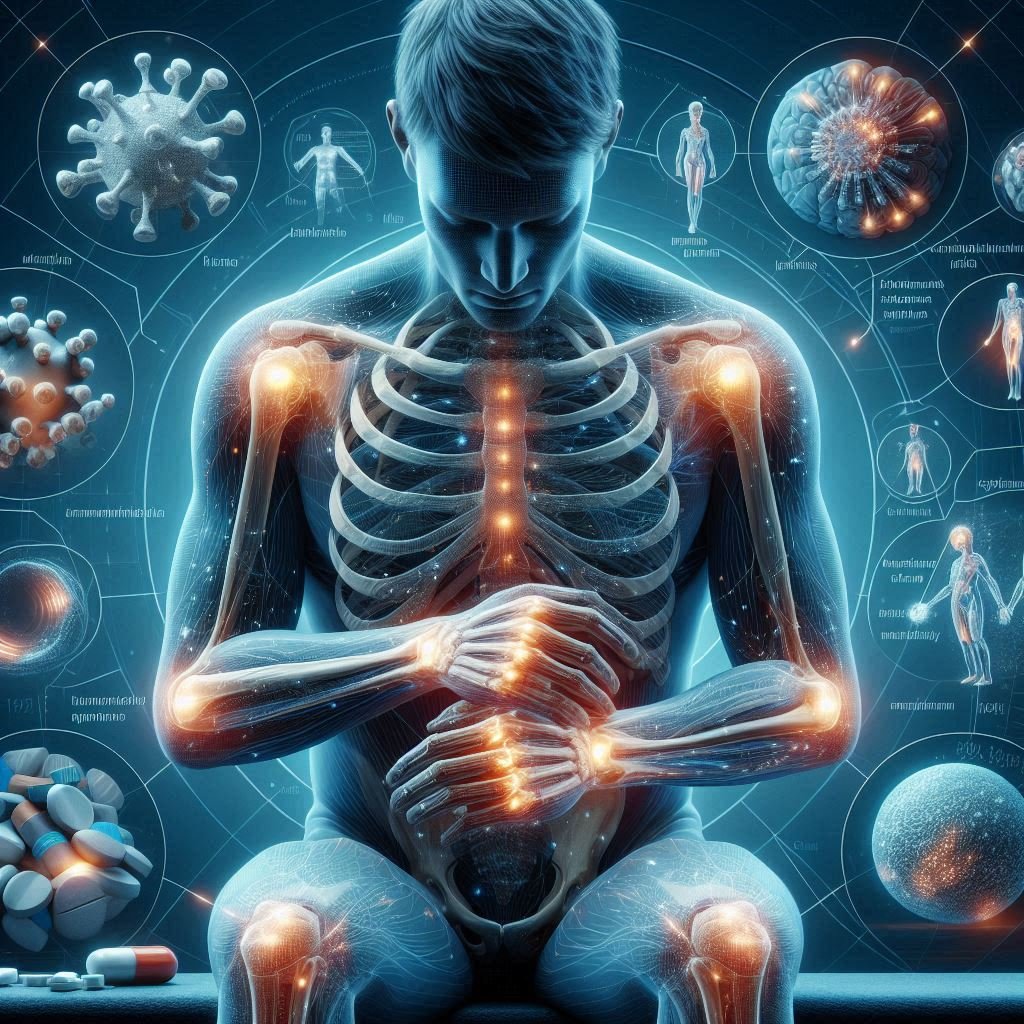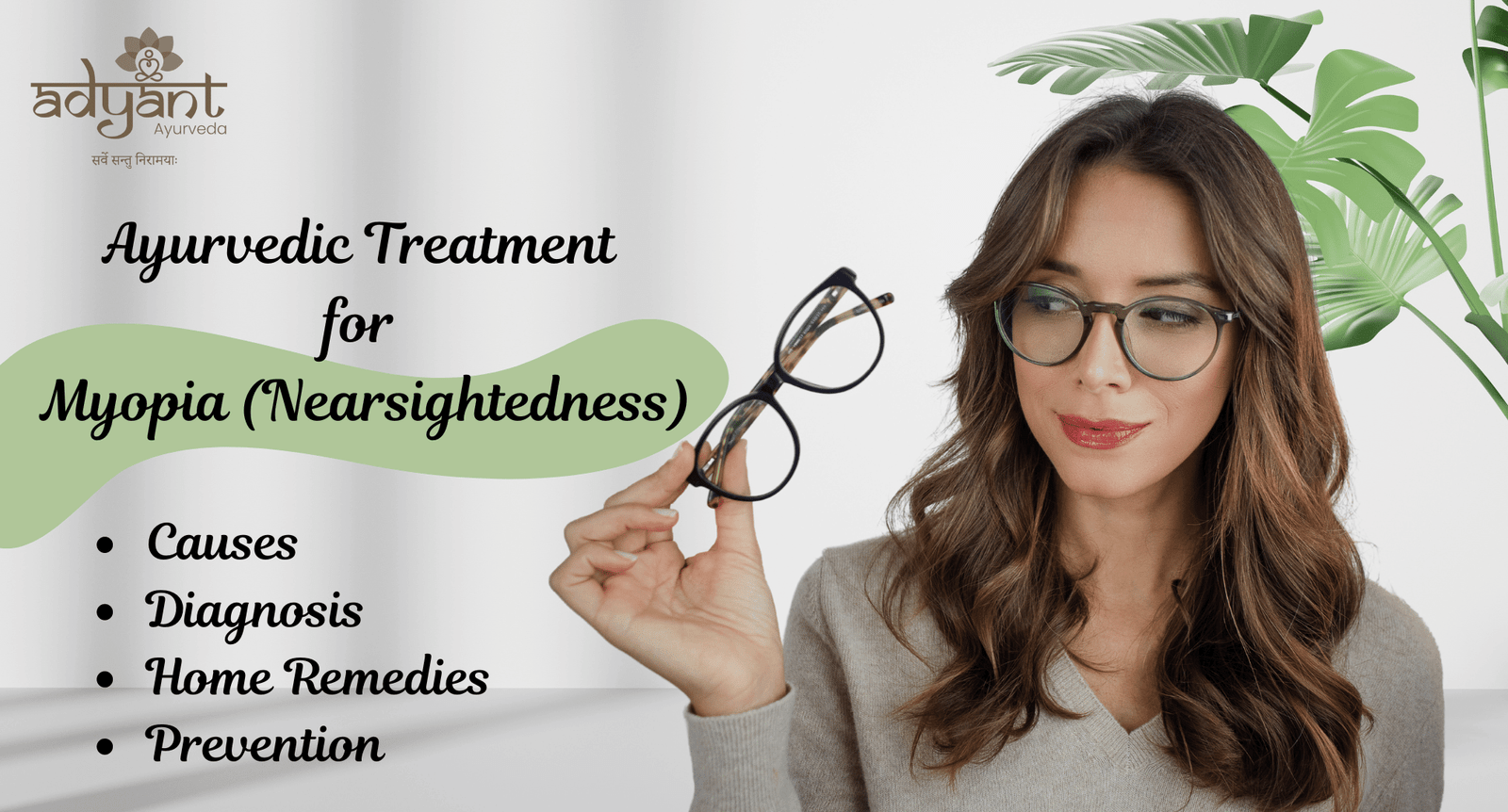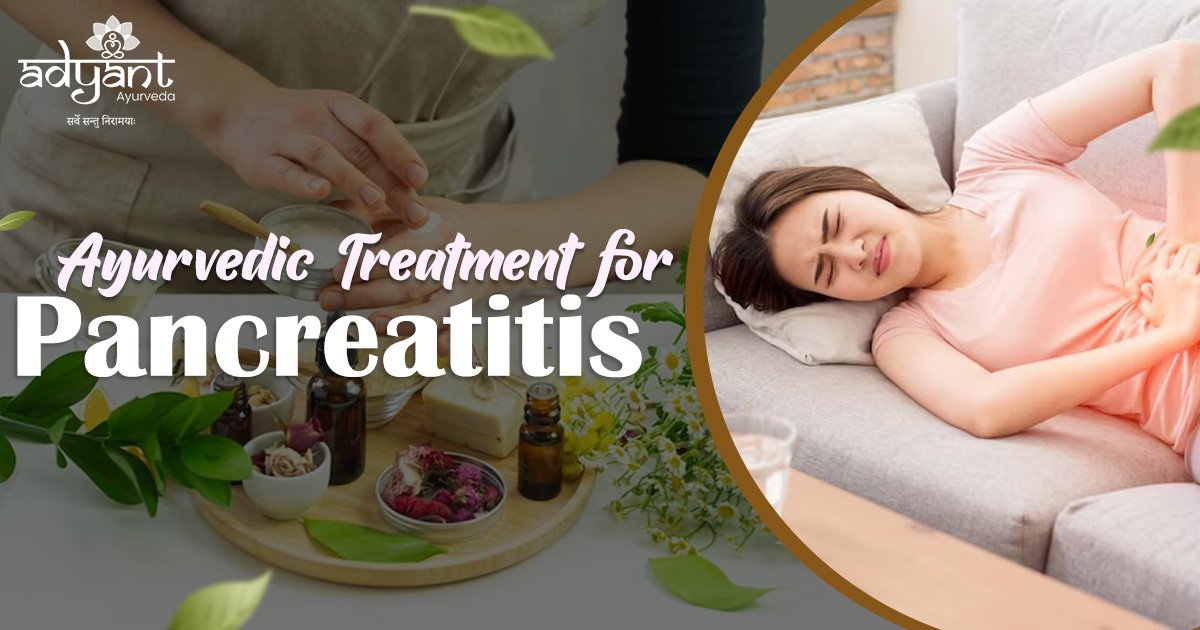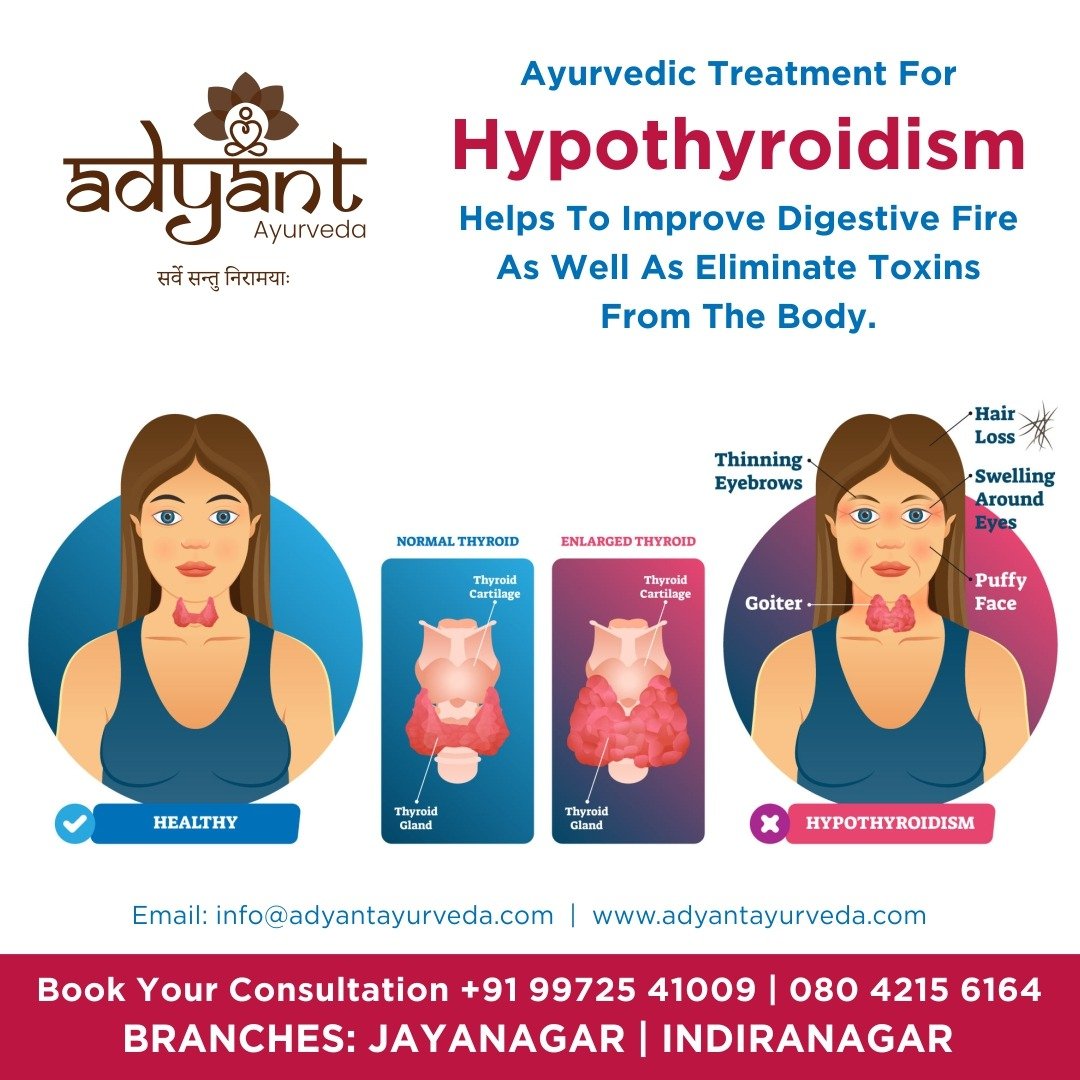Table of Contents
ToggleAyurvedic Treatment for Arthritis: Arthritis, a chronic inflammatory condition, affects over 350 million people globally, leading to joint pain, stiffness, and limited mobility. While modern medicine offers symptomatic relief, it often falls short in providing long-term solutions.
Ayurveda, the 5,000-year-old Indian system of medicine, approaches arthritis holistically by addressing the root cause – imbalanced doshas and toxin accumulation – through detoxification, diet, herbs, and lifestyle changes.
In this article, we offer a comprehensive Ayurvedic perspective on arthritis, covering types, causes, treatments, and prevention strategies, guided by experienced Ayurvedic doctors at Adyant Ayurveda, Bangalore’s leading Panchakarma and arthritis treatment center.
🔍 Understanding Arthritis in Ayurveda
In Ayurveda, arthritis is primarily categorized as a Vata Vyadhi (Vata-dominant disorder), but it may also involve Pitta or Kapha depending on the type. The root pathology begins with:
Agni Mandya (weakened digestion)
Ama (toxin accumulation)
Dosha vitiation, especially Vata
Srotorodha (blockage in body channels)
Asthi Dhatu kshaya (depletion of bone tissues)
These factors lead to inflammation, degeneration, and pain in joints.
🔍 Ayurvedic Classifications of Arthritis
| Modern Type | Ayurvedic Correlation | Doshas Involved |
|---|---|---|
| Rheumatoid Arthritis | Amavata | Vata + Ama |
| Osteoarthritis | Sandhivata | Vata |
| Gout | Vatarakta | Vata + Rakta |
| Ankylosing Spondylitis | Asthi Gata Vata | Vata + Asthi Dhatu |
| Psoriatic Arthritis | Kushta + Vata involvement | Vata + Pitta + Twak |
| Reactive Arthritis | Ama + Gut-related Vata issue | Vata + Ama |
| Juvenile Idiopathic Arthritis | Poor Agni + Genetics | Vata + Pitta |
| Septic Arthritis | Requires urgent Shodhana | Tridoshic with Pitta |
| Thumb Arthritis | Localized Sandhivata | Vata |
🧬 Ayurvedic Pathophysiology of Arthritis
📌 Root Cause:
Agni Dushti → 2. Ama Formation →
Dosha vitiation (especially Vata) →
Ama lodges in joints →
Inflammation, pain, and degeneration
💡 Role of Doshas:
Vata: Dryness, cracking, stiffness, degeneration
Pitta: Inflammation, redness, burning sensation
Kapha: Swelling, heaviness, dull pain
Ayurvedic Treatment Protocol for Arthritis
Ayurvedic treatment involves a structured protocol comprising Panchakarma therapies, herbal medications, diet, lifestyle corrections, and external applications.
1. Detoxification Therapies (Panchakarma)
| Therapy | Benefits |
|---|---|
| Virechana | Expels Pitta-related toxins, reduces inflammation. |
| Basti | Restores Vata balance, deeply nourishes joints. |
| Vamana | Clears Kapha toxins in early-stage joint stiffness. |
| Raktamokshana | Useful in Vatarakta (Gout), purifies blood. |
2. Herbal Remedies for Arthritis
| Herb | Key Action |
|---|---|
| Shallaki | Anti-inflammatory, promotes cartilage repair. |
| Ashwagandha | Adaptogen reduces cortisol and joint pain. |
| Guggulu | Detoxifies, balances Vata and Kapha. |
| Haridra (Turmeric) | Curcumin reduces inflammation. |
| Nirgundi | Analgesic, anti-inflammatory. |
| Eranda (Castor Oil) | Vata pacifier and detoxifier. |
3. External Therapies for Arthritis
Abhyanga (Oil Massage): Uses warm medicated oils like Mahanarayan Taila to ease joint pain.
Pinda Sweda (Herbal Bolus): Provides deep tissue relief and enhances circulation.
Janu Basti: Local oil pooling over knees, ideal for osteoarthritis.
Lepa (Herbal Paste): Anti-inflammatory pastes made with turmeric, neem, and ginger.
Diet and Lifestyle Recommendations
Ayurvedic Diet for Arthritis:
✅ Favor:
Warm, cooked foods: khichdi, soups, stews
Spices like turmeric, cumin, ginger
Herbal teas (Triphala, ginger tea)
❌ Avoid:
Cold, raw, processed foods
Incompatible food combinations (e.g., milk + fish)
Excessive salt and red meat
Lifestyle Guidelines:
Yoga Asanas: Bhujangasana, Trikonasana, Ardha Matsyendrasana
Pranayama: Anulom Vilom, Bhramari for stress relief
Dinacharya: Follow a regular daily routine—timely meals, gentle exercise, and restful sleep
Real Results: Ayurvedic Success Stories at Adyant Ayurveda
“I was suffering from rheumatoid arthritis for years and had become dependent on steroids. The Panchakarma therapies and herbal medications at Adyant Ayurveda changed my life. Pain has reduced drastically, and I feel energetic again.”
— Sujatha R., Bangalore
With over 24 years of clinical expertise, our senior doctors at Adyant Ayurveda have treated thousands of arthritis cases using classical Ayurvedic protocols.
🌏 Global Impact & Need for Holistic Healing
Over 350 million people suffer from arthritis globally
In India, 15% of the population is affected
The burden is rising due to aging, a sedentary lifestyle, and a poor diet
Modern medicine provides symptomatic relief. Ayurveda targets the root cause, preventing recurrence and improving quality of life.
❗Preventive Care for Arthritis in Ayurveda
Ayurveda isn’t just about treatment—it excels in prevention. For individuals above 40, or those with a family history of arthritis or a sedentary lifestyle:
Undergo seasonal Panchakarma detox (especially Basti or Virechana).
Maintain a Vata-pacifying diet—warm, light, and nourishing.
Use simple home routines: warm oil self-massage (Abhyanga), regular bowel movement, and early dinners.
Practice gentle yoga: Vajrasana, Trikonasana, and Pranayama to keep joints active and circulation strong.
❗Home Remedies and Daily Practices
Castor oil + dry ginger paste on swollen joints for anti-inflammatory relief.
Drink warm turmeric water in the morning (with a pinch of black pepper).
Use Dashamoola decoction for balancing Vata and relieving pain.
Soak in Epsom salt + Dashamoola kwatha for joint relaxation (optional for home-based wellness).
Ayurvedic Diet and Lifestyle Recommendations
Eat freshly cooked, warm, easy-to-digest meals.
Avoid cold, stale, fermented, and heavy foods.
Reduce intake of tomato, brinjal, curd, and red meat.
Add spices like ginger, turmeric, cumin, and coriander to aid digestion.
Keep a regular sleep routine and avoid daytime sleep.
🌿 Case Study at Adyant Ayurveda
72-year-old male with osteoarthritis reported improved flexibility and reduced stiffness after a 3-week Basti protocol combined with Rasayana therapy.
Why Choose Adyant Ayurveda for Arthritis Treatment?
✅ 4 Centers across Bangalore (Jayanagar, Indiranagar, Kalyan Nagar, RR Nagar)
✅ Expert Ayurvedic Physicians with MS in Shalya, Panchakarma, and Kayachikitsa
✅ Personalized treatment plans based on Prakriti Pariksha and Nadi Pariksha
✅ Authentic Panchakarma facilities and in-house Ayurvedic pharmacy
✅ Online/Offline Consultation & Medicine Delivery via Adyant Ayurveda App
🔚 Conclusion: Embrace Ayurveda for Long-Term Relief
Ayurveda doesn’t just manage pain—it heals from within. By balancing doshas, removing toxins, and rejuvenating tissues, Ayurveda restores mobility, vitality, and quality of life.
If you or a loved one suffers from arthritis, it’s time to transition from temporary treatments to a time-tested natural healing system.
📞 Book Your Consultation Today
Contact Adyant Ayurveda at 9972541009 or visit your nearest branch in Bangalore. Let our experts guide you to a pain-free, flexible, and active life—naturally.
You may also like
- Panchakarma treatment in Bangalore
- Osteoarthritis Ayurvedic treatment
- Ayurvedic Treatment for Joint Pain
Refereances
Frequently Asked Questions (FAQs)
What is the best Ayurvedic treatment for arthritis?
The best Ayurvedic treatment for arthritis involves a combination of Panchakarma therapies (like Virechana and Basti), herbal medications (such as Shallaki, Guggulu, and Ashwagandha), dietary changes, and lifestyle corrections to balance the doshas and remove toxins from the body.
Can Ayurveda cure arthritis permanently?
Ayurveda aims to eliminate the root cause of arthritis by detoxifying the body and correcting metabolic imbalances. While the term “cure” depends on the type and severity, Ayurveda provides long-term relief and can prevent progression when followed consistently.
Which dosha causes arthritis according to Ayurveda?
Arthritis is primarily a Vata dosha disorder, but depending on the type, Pitta and Kapha doshas can also be involved. For example, Amavata (Rheumatoid Arthritis) involves Vata and Ama, while Vatarakta (Gout) involves Vata and Rakta.
Is Panchakarma effective for arthritis?
Yes, Panchakarma is highly effective in treating arthritis. Therapies like Basti (medicated enema), Virechana (purgation), and Abhyanga (herbal oil massage) help remove toxins, balance Vata, reduce inflammation, and rejuvenate joints.
Which Ayurvedic herbs are good for joint pain?
Some powerful Ayurvedic herbs for joint pain include:
Shallaki (Boswellia) – Anti-inflammatory
Guggulu – Detoxifies joints
Ashwagandha – Reduces stress and joint degeneration
Haridra (Turmeric) – Natural anti-inflammatory
Nirgundi – Pain reliever and anti-swelling
Is Ayurvedic treatment safe for elderly arthritis patients?
Yes, Ayurvedic treatment is generally safe and well-tolerated by the elderly, as it uses natural therapies and customized treatments based on the individual’s constitution (Prakriti). However, it should be administered by qualified Ayurvedic doctors after a thorough evaluation.
How long does Ayurvedic treatment take to show results for arthritis?
The duration varies based on the type and severity of arthritis, age, and overall health. Some patients see improvements within 2–4 weeks, while chronic cases may require 2–3 months or more for noticeable and sustained results.
Can Ayurveda help with rheumatoid arthritis?
Yes, Ayurveda is particularly effective in treating Amavata, the Ayurvedic equivalent of Rheumatoid Arthritis. It helps reduce joint swelling, pain, stiffness, and systemic inflammation through detoxification, diet, herbs, and strengthening immunity.
What should arthritis patients avoid in their diet according to Ayurveda?
Arthritis patients should avoid:
Cold, processed, and fermented foods
Heavy, greasy, or oily foods
Incompatible food combinations (like curd + meat, milk + fish)
Excessive salt, sugar, and red meat
Where can I get the best Ayurvedic treatment for arthritis in Bangalore?
You can visit Adyant Ayurveda, which has 4 centers in Bangalore (Jayanagar, Indiranagar, Kalyan Nagar, RR Nagar). Their team of experienced Ayurvedic doctors and therapists provides personalized arthritis treatments using authentic Panchakarma and herbal protocols.









